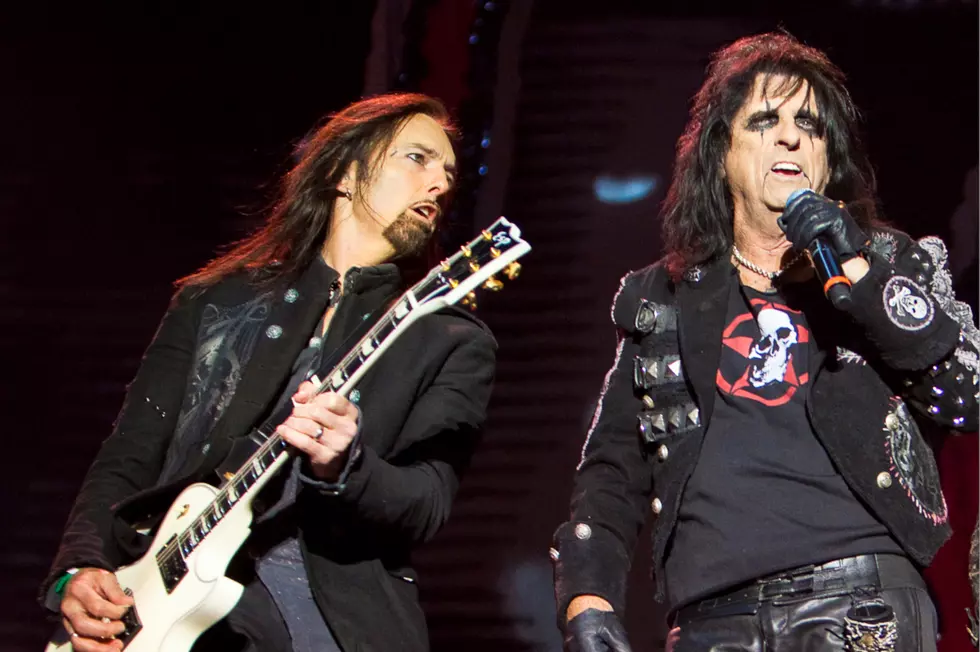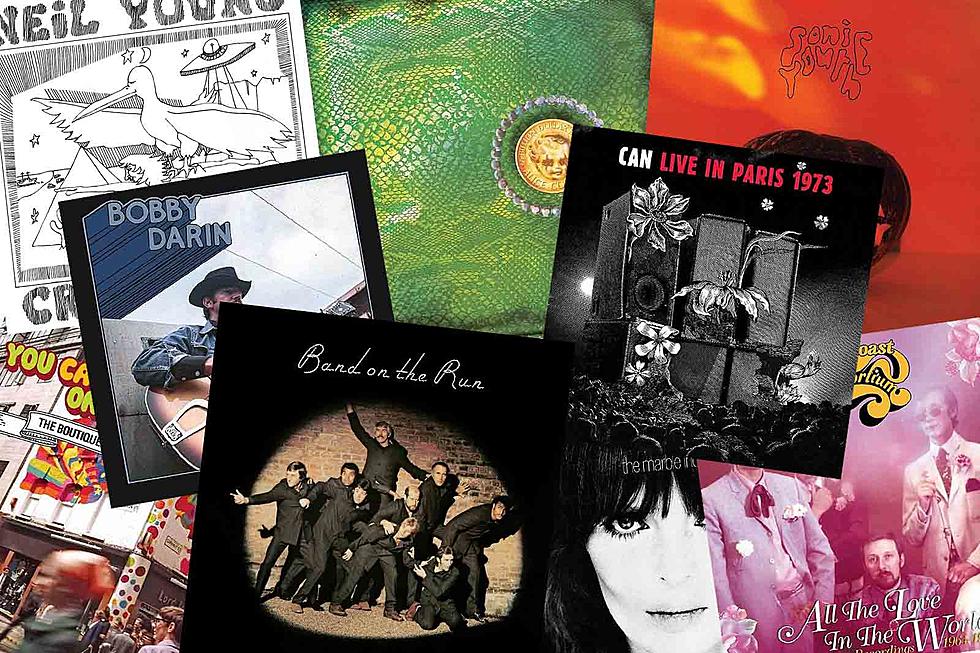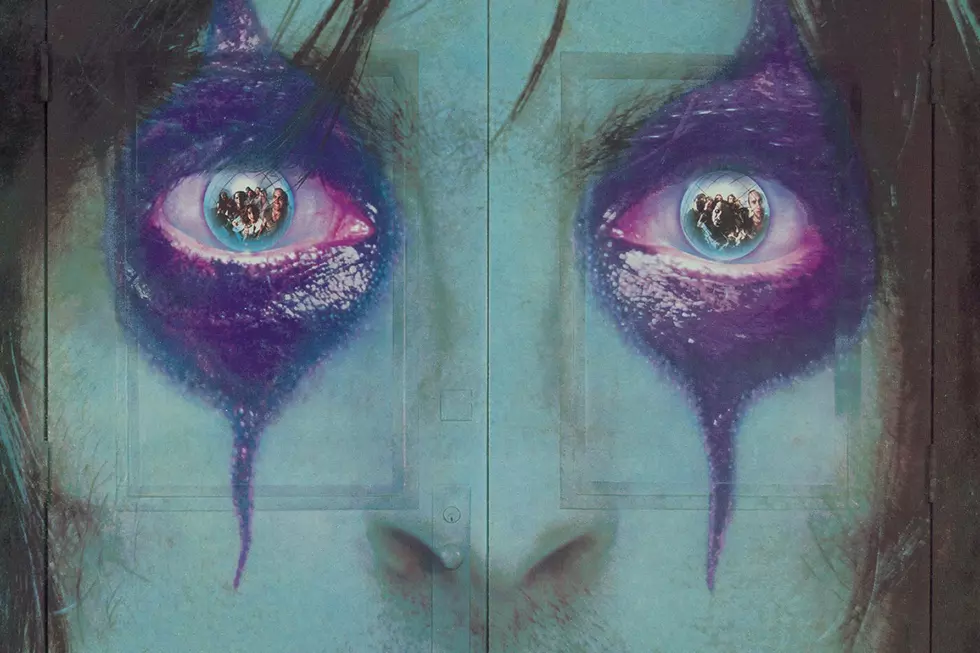
Revisiting ‘Medicine Ball Caravan,’ the ‘Woodstock on Wheels’
A convoy of buses and trucks carrying 154 hippies and an army of cooks, secretaries, camp workers and stagehands left San Francisco on Aug. 5, 1970 for a cross-country journey.
A 15-man French film crew recorded the series of free concerts staged during the month-long trek for a documentary titled Medicine Ball Caravan. Artists who flew in and performed along the way included B.B. King, Alice Cooper and Cajun fiddler Doug Kershaw. The Oakland Tribune called the trip "Woodstock on wheels."
Caravan was the brainchild of Tom Donahue, the disc jockey who brought underground music to FM radio. Donahue used his connections with the Bay Area’s counterculture to handpick the tribe of young artists, poets, craftsmen and painters who appear in the film. Warner Bros., which earned $50 million on a $600,000 investment in Woodstock, its film of the 1969 festival, bankrolled Caravan to the tune of $1 million. The studio hoped to duplicate Woodstock’s success with shows that featured many Warners recording artists.
The group stopped in places like Boulder, Colo.; Sioux City, Iowa; and Washington, D.C., then flew to England for a final concert. The hippies, whose expenses were paid by the studio, encountered protesters along the way who felt the project was a corporate rip-off. In Ohio, an Antioch College student told the crew: "We don't like the idea of somebody coming in here and making a movie about us, and making a lot of money from it. We feel, you know, that the film should be used to help the people."
John Grissim, Jr. accompanied the tour and wrote We Have Come for Your Daughters: What Went Down on the Medicine Ball Caravan. Donahue’s pitch to Warner Bros. execs is documented in the book.
"We have formed a caravan of love, discovery and sharing that will retrace the steps of the pioneers from West to East and on to the Europe of our forefathers," wrote Donahue. “We come in a spirit of happiness and peace, with a party on wheels whose anthem is the music of the Grateful Dead, the group that more than any other represents the San Francisco roots of the Space Age Renaissance.”
The Dead, however, backed out. Instead Stoneground, a Bay Area rock, blues and soul outfit, joined as the traveling house band, the only group to perform at every concert. Sal Valentino, lead singer of the Beau Brummels in the '60s, was the best-known member of Stoneground. Keyboardist Cory Lerios, guitarist David Jenkins and drummer Steve Price would go on to form Pablo Cruise in 1973.
French director Francois Reichenbach and his crew were hired to document the journey. Reichenbach won an Academy Award in 1970 for Arthur Rubinstein: The Love of Life. But the crew's poor grasp of both American culture and the English language hindered the interviews filmed throughout the trip.
Watch Interviews from 'Medicine Ball Caravan'
The cornucopia of drugs brought along by the hippies only added to the production's problems. The film crew was often stoned on LSD, mescaline and pot, which resulted in out-of-focus camera work, mislabeled film cans and missing audio tracks.
Martin Scorsese, who had worked on Woodstock, was hired to re-cut the confused mess into its final 92-minute form. "They had a nine-hour cut — it was in three gauges — 35mm Techniscope, 16mm and 8mm,” the director recalled in Martin Scorsese: Interviews. “It was nine hours long and nobody knew what was happening. It had no continuity, nothing. … It was a monstrous job and we did so many technical effects. I mean, you can only do so much when there’s no content.”
A soundtrack album, now out of print, was released in 1971. Artists as varied as Joni Mitchell, Hot Tuna and Van Morrison performed during the trip but didn't make the final cut. The final concert in England, featuring Pink Floyd and Rod Stewart and the Small Faces, was also left out of the film and LP. Many consider B.B King’s performance in Placitas, N.M. the finest of the film. The blues legend, backed by his combo of piano, bass, drums and three horns, roars through “How Blue Can You Get” and “Just a Little Love.”
Watch B.B. King Perform 'How Blue Can You Get' and 'Just a Little Love'
Doug Kershaw played a lightning-fast medley of “Louisiana Man,” “Battle of New Orleans” and “Orange Blossom Special” while dancing across the stage. Stoneground performed a medley of “Freakout” and Bob Dylan’s “It Takes a Lot to Laugh, It Takes a Train to Cry.” Valentino also played acoustic guitar and sang “Dreambo."
Alice Cooper, relatively unknown in 1970, tore up the stage at L’Enfant Plaza in Washington, D.C. Grissim writes: “He appears before the microphone wearing a dress and a silk scarf which he dramatically removes to the beatless cacophony of half-acid rock, revealing a black body stocking beneath. […] Here stands a gaunt, horribly anemic wicked witch straight out of The Wizard of Oz. He leaps about the stage, sneering, snapping and taunting his viewers, twirling a handmike, casting voodoo spells, spinning around like some speed freak dervish.” Cooper closed the concert with “Black Juju,” his only song featured on the soundtrack. By concert’s end, Cooper threw a large pillowcase full of chicken feathers into the crowd and fired a flare gun into the night sky.
Added to the soundtrack was the Youngbloods' “Act Naturally” and “Hippie from Olema,” their answer song to Merle Haggard’s “Okie from Muskogee.” Delaney & Bonnie contributed their take on singer-songwriter Barbara Keith’s “Free the People.”
Medicine Ball Caravan opened on Aug. 25, 1971 in New York City to tepid reviews and sparse audiences. The film closed a week later and was soon withdrawn from circulation. Warner Bros. has yet to release the film on DVD and reportedly lost $1.5 million on the project.
“But apart from the movie, I think the caravan itself succeeded in a lot of ways,” Donahue said later. “It brought a great deal of community feeling to other people as it moved along. That whole feeling of ‘We are not alone.’ People could say, ‘Man, do you see what’s out there? An incredible collection of freaks going across the country. There’s a lot more of them and they look like us and are interested in the same thing and they’re bringing with them this great groovy music.’ And we did.”
'Medicine Ball Caravan' Track Listing
"Act Naturally" — The Youngbloods
"Medley: How Blue Can You Get / Just a Little Love" — B.B. King
"Medley: Louisiana Man / Battle of New Orleans / Orange Blossom Special" — Doug Kershaw
“Hippie From Olema" — The Youngbloods
"Dreambo" — Sal Valentino
"Black Juju" — Alice Cooper
"Medley: Freakout / It Takes a Lot to Laugh, It Takes a Train to Cry" — Stoneground
"Free the People" — Delaney & Bonnie
The Best Albums From More Than 100 Classic Rock Acts
You Think You Know Alice Cooper?
More From Ultimate Classic Rock









